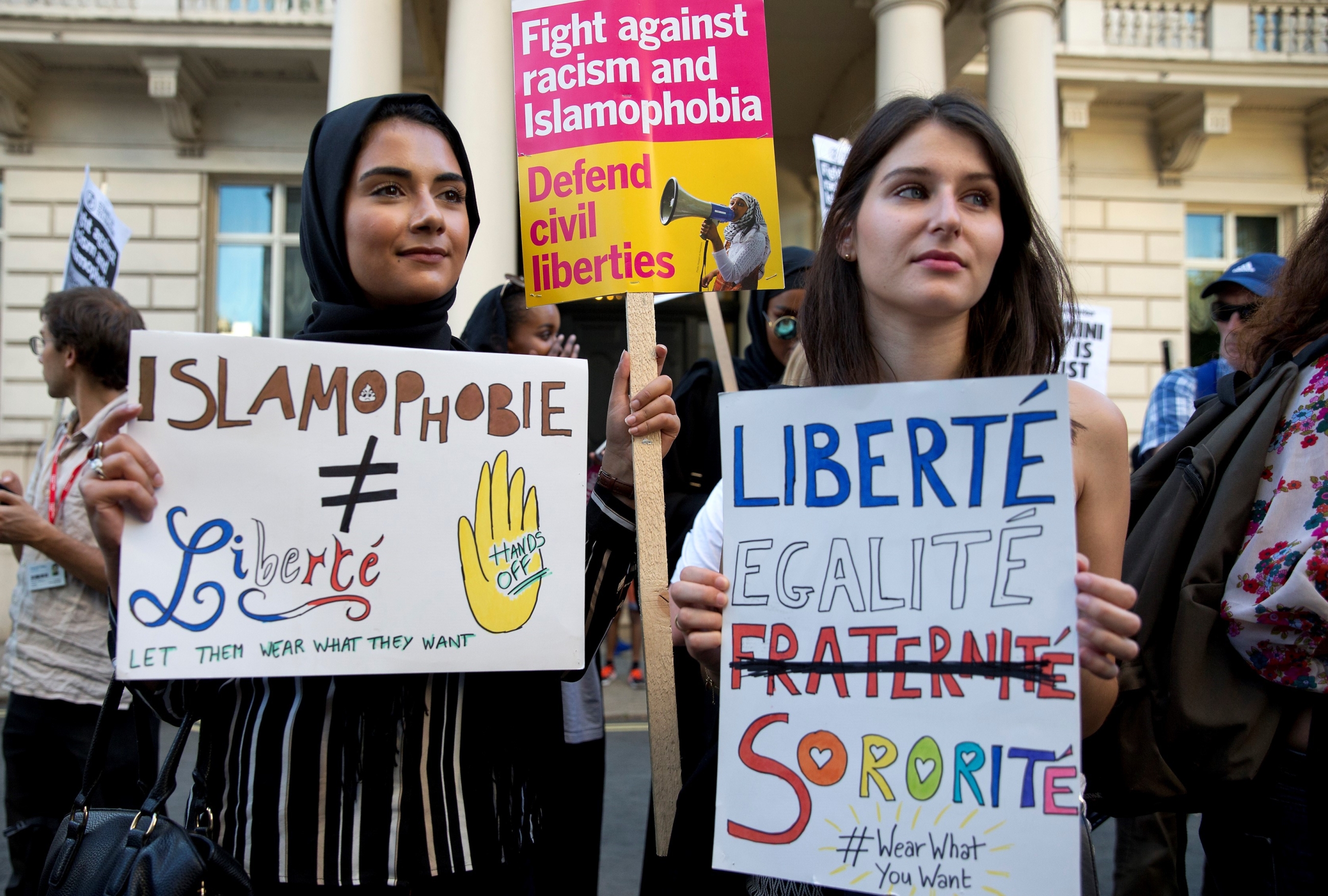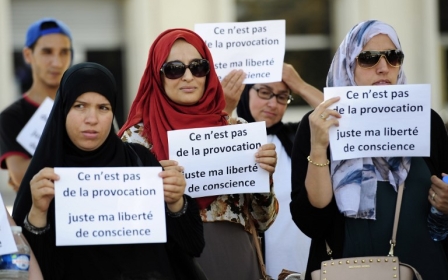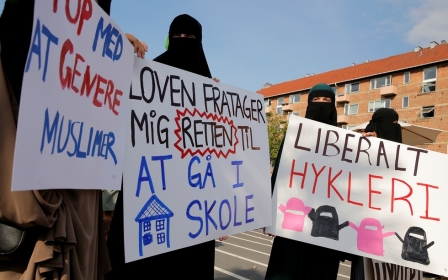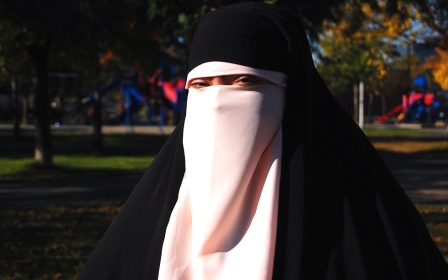France’s attack on Muslim women must stop

Last month, faced with a public backlash and violent threats, French sports retailer Decathlon pulled plans to sell a "running" hijab in France.
This is not an isolated case, but part of a larger, structural stigmatisation and exclusion of French Muslim women.
This intersectional form of discrimination marginalises the most vulnerable women and is part of a historical continuum of fundamental rights infringements - one that is set to continue, unless it is acknowledged by France’s institutions, political elite and civil rights defenders.
The visibility of the Muslim presence in France - notably through the wearing of the hijab - has become a controversial topic, whose history spans several decades.
Obsession with the headscarf
New MEE newsletter: Jerusalem Dispatch
Sign up to get the latest insights and analysis on Israel-Palestine, alongside Turkey Unpacked and other MEE newsletters
In 1989, three Muslim girls were suspended from their school in a suburb of Paris for wearing the hijab. Since then, France has entered a regulation frenzy, consumed by the question of Muslim women’s head coverings.
This obsession has taken shape through different laws, including the 2004 law banning the headscarf from schools and the 2011 ban on full face veils in public spaces.
Muslim women in France face significant barriers to attending school, working in the public or private sector, swimming, and now even running
Every now and then, advocates float the idea of banning the hijab in universities or even in all public spaces, dragging unwilling French Muslim women into yet another public debate.
Such developments reveal how the French state wants to regulate and confine the Muslim presence - in particular, the visibility of Muslim women - through legal means. Such laws, which clearly infringe on fundamental rights, have not been properly assessed to determine their impacts on the women targeted by them.
This profusion of French laws leads to the misinterpretation by the state apparatus and the population at large of the legal framework, leading to illegal exclusions and discrimination against Muslim women.
The over-zealousness of civil servants in protecting their own interpretation of French laicite (secularism) laws leads them to go beyond the actual laws - which are already "liberticide" in many regards.
According to a 2017 report by the Collective Against Islamophobia in France, 40 percent of Islamophobic acts were committed by government authorities, and a further 53 percent by legal entities.
The burkini controversy is a perfect example of state officials infringing on Muslim women’s rights to wear religious clothing, or simply to dress as they wish, despite the absence of a legal framework for such interdictions. More than a dozen municipalities banned burkinis on public beaches, a clear breach of women’s constitutional rights and freedoms.
Over-zealous secularism
In an even more vicious case of misinterpretation of the law, young women have been cast out of schools for wearing long skirts, interpreted as a religious symbol because of the young women’s religious identity.
Such discrimination is not limited to the state: from social media, to traditional media, to the French streets and over-zealous secular citizens, French Muslim women are routinely excluded.
The Decathlon case marks the advent of a new strategy of exclusion. While many politicians and observers have rightly pointed to the legality and freedom of a private business to sell this product in France - and while there appears to be a consensus that it is not forbidden for Muslim women to run while wearing the hijab - a large fringe of the French elite took it upon themselves to feed the controversy.
This strategy heralds a new phase in the demonisation of the hijab and of Muslim women in France. If something cannot be banned through legal means, opponents turn to other methods, including violent threats, to target the country’s Muslim presence.
Enemies of the state
This sustained attack on the visibility of Muslim identity has created a situation in which Muslim women are viewed as public enemies of the French state. The end result is collective hysteria whenever a headscarf is seen in the public sphere.
This has been seen over and over again, from the two women who were thrown out of a Paris restaurant because they were wearing headscarves, to the mother who was barred from attending a school field trip with her daughter because of her hijab, to the woman who was forced by local police to strip off her burkini on a public beach - and the list goes on.
As women around the world marked International Women’s Day earlier this month, Muslim women in France face significant barriers to attending school, working in the public or private sector, swimming, and now even running. Their safety is constantly at risk.
It is time for civil society in France and elsewhere to see the situation for what it really is. Far from the bucolic and romantic image that France likes to portray, this is now a country that stigmatises, excludes and marginalises its Muslim minority - in particular, its Muslim women - to an extent beyond any other Western country in the last half-century.
The views expressed in this article belong to the author and do not necessarily reflect the editorial policy of Middle East Eye.
Middle East Eye delivers independent and unrivalled coverage and analysis of the Middle East, North Africa and beyond. To learn more about republishing this content and the associated fees, please fill out this form. More about MEE can be found here.







